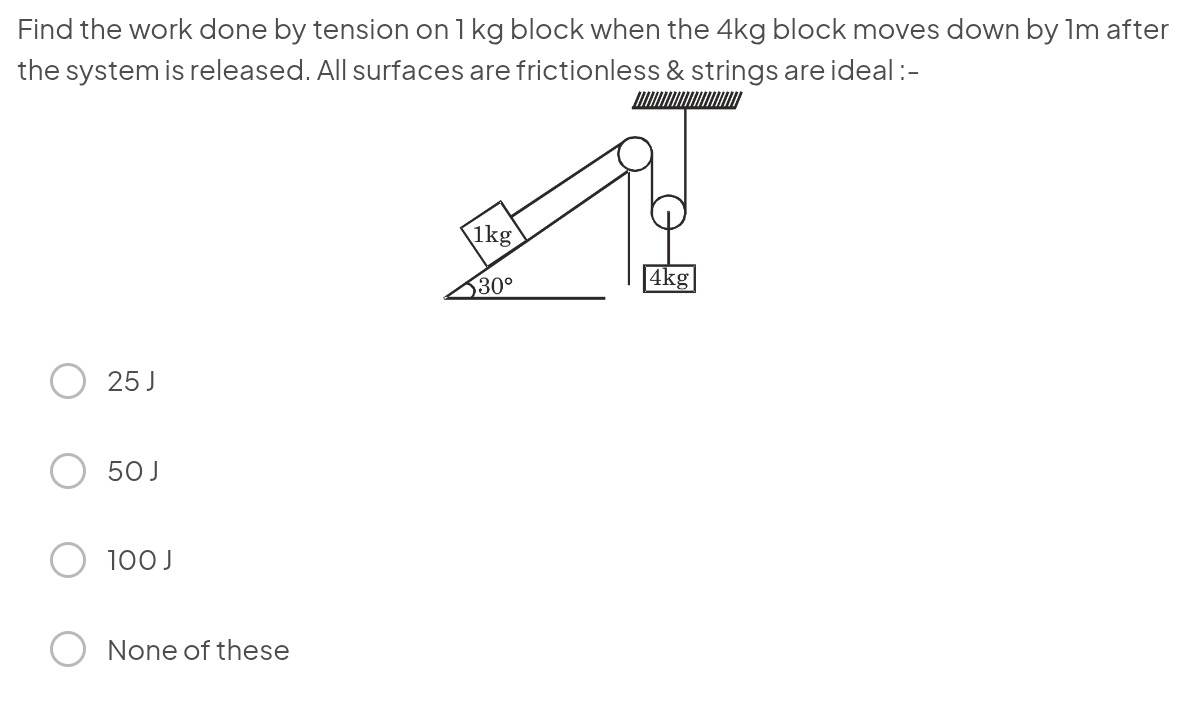Question
Question: Find the work done by tension on 1 kg block when the 4kg block moves down by 1m after the system is ...
Find the work done by tension on 1 kg block when the 4kg block moves down by 1m after the system is released. All surfaces are frictionless & strings are ideal :-

25 J
50 J
100 J
None of these
25 J
Solution
The problem involves a system of two blocks connected by strings and pulleys. We need to find the work done by tension on the 1 kg block when the 4 kg block moves down by 1 meter.
-
Kinematic Relationship: Let x be the distance the 1 kg block moves up the incline and y be the distance the 4 kg block moves down. The pulley system is such that for every distance y the 4 kg block moves down, the length of the string from the fixed pulley to the movable pulley increases by y, and the length of the string from the movable pulley to the ceiling attachment also increases by y. This means the total length of string that must be pulled from the other side is 2y. Therefore, the 1 kg block moves up the incline by x=2y. Given that the 4 kg block moves down by y=1 m, the 1 kg block moves up the incline by x=2×1=2 m.
-
Equations of Motion: Let T be the tension in the string. Let a4 be the acceleration of the 4 kg block downwards and a1 be the acceleration of the 1 kg block up the incline. From the kinematic relationship, a1=2a4.
- For the 4 kg block: The forces are its weight (4g) downwards and twice the tension (2T) upwards (since the movable pulley is supported by two segments of the string with tension T). Equation of motion: 4g−2T=4a4.
- For the 1 kg block: The forces are tension (T) up the incline and the component of gravity down the incline (1gsin30∘). Equation of motion: T−1gsin30∘=1a1. Since sin30∘=1/2, this becomes T−2g=a1.
-
Solving for Tension: Substitute a1=2a4 into the second equation: T−2g=2a4. From the first equation, we can express 2a4 as: 2a4=2g−T. Substitute this into the modified second equation: T−2g=2g−T. Rearranging the terms to solve for T: 2T=2g+2g=25g. T=45g.
-
Work Done by Tension: The work done by tension on the 1 kg block is given by W=T×x, where T is the tension and x is the displacement of the block in the direction of the tension. The tension T acts up the incline, and the 1 kg block moves up the incline by x=2 m. W=T×x=(45g)×2=25g. Assuming g=10m/s2 (standard value for JEE/NEET problems unless specified otherwise): W=25×10=250=25J.
